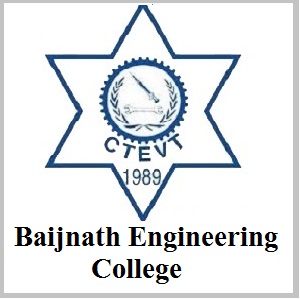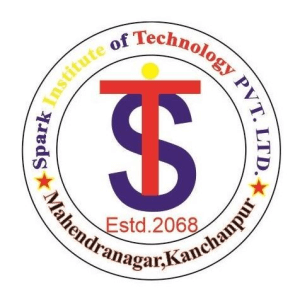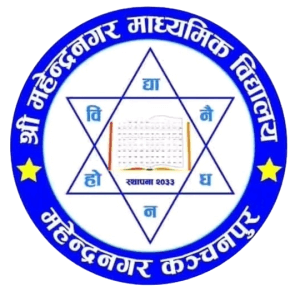Overview
Diploma in Mechanical Engineering at Suklaphanta Polytechnic Institute
The Diploma in Mechanical Engineering at Suklaphanta Polytechnic Institute (SPI) is a three-year technical education program affiliated with the Council for Technical Education and Vocational Training (CTEVT). Located in Shuklaphanta Municipality–11, Jhalari, Kanchanpur District, this course is structured to prepare skilled mid-level technicians capable of working in mechanical workshops, factories, and industrial environments.
The program has an annual intake of 24 students, with three seats reserved for scholarship candidates. Applicants must have passed the Secondary Education Examination (SEE) and qualify through the CTEVT entrance examination to gain admission. The curriculum and fee structure strictly follow the standards set by CTEVT, ensuring national recognition and academic quality.
Curriculum Details
The course runs over six semesters, combining theoretical knowledge with practical skills. It includes lab-based sessions, machine shop training, drawing classes, and mechanical system analysis. Subjects include:
-
Engineering Drawing
-
Workshop Technology
-
Strength of Materials
-
Thermal Engineering
-
Hydraulics and Pneumatics
-
Machine Design
-
Manufacturing Process
-
Applied Mechanics
-
Industrial Management
-
Maintenance Engineering
-
Electrical and Electronics Fundamentals
-
Project Work and Field Training
Each semester includes continuous internal evaluation, practical assessment, and final examinations in accordance with CTEVT’s academic regulations.
Objectives
The key aim of this diploma program is to produce competent mechanical technicians who can contribute to Nepal’s growing industrial and manufacturing needs. Specific goals include:
-
Developing problem-solving skills for mechanical system operation and maintenance
-
Introducing students to various types of machinery, tools, and safety protocols
-
Encouraging effective use of resources in industrial tasks
-
Building foundational skills for mechanical design, analysis, and repairs
-
Preparing students for professional roles in factories, workshops, and technical service companies
Scope
Graduates of this program can work in:
-
Mechanical workshops
-
Hydropower projects
-
Manufacturing industries
-
Vehicle service centers
-
Government and private technical service offices
-
Industrial equipment sales and maintenance divisions
Depending on institutional equivalence policies, the diploma also qualifies students for further study in Bachelor-level engineering programs in Nepal and abroad.
Learning Outcomes
By the end of the program, students will be able to:
-
Read and interpret mechanical drawings and blueprints
-
Operate, repair, and maintain a wide range of industrial machinery
-
Handle workshop tools safely and efficiently
-
Identify faults in mechanical systems and propose practical solutions
-
Apply engineering principles to real-life problems in industrial settings
-
Perform preventive and corrective maintenance of machines
Skill Development Modules
Practical skills form the backbone of this course. Key focus areas include:
-
Use of hand tools, lathe machines, grinders, and welding tools
-
Mechanical system alignment and calibration
-
Heat transfer principles and thermodynamic cycles
-
Industrial safety practices
-
Fabrication, measurement, and fitting techniques
-
Preparation of technical reports and mechanical documentation
Teaching Methodology
SPI takes a student-centered approach that balances classroom instruction with practical learning. Experienced instructors deliver lectures and support student growth through demonstration, peer discussion, hands-on training, and project assignments. Guest sessions and local site visits enhance real-world learning and introduce students to regional industrial practices.
Admission Requirements
To be eligible, candidates must:
-
Pass the SEE (Secondary Education Examination)
-
Secure at least grade 'C' in Compulsory Mathematics and Science, and 'D+' in English
-
Pass the entrance exam conducted by CTEVT
Students are selected based on merit from the entrance exam results.
Career Opportunities
Mechanical diploma graduates are often employed in:
-
Industrial machine repair shops
-
Automobile and motorcycle service centers
-
Hydropower plants and mechanical departments of large-scale projects
-
Mechanical production units
-
Public utilities, factories, and mechanical inspection offices
Job roles may include mechanical technician, machine operator, plant maintenance assistant, or mechanical supervisor. Some graduates also work as entrepreneurs, establishing small mechanical workshops or tool-based services in rural and urban areas.
Scholarships and Financial Aid
Three of the 24 seats are allocated to scholarship students under the CTEVT inclusion and merit-based scholarship framework. Priority is given to academically capable applicants from underprivileged, remote, or disadvantaged backgrounds. Scholarship recipients may receive full or partial tuition coverage as per CTEVT rules.
Why Choose This Course?
This program suits SEE graduates who are interested in working with machines and industrial equipment. It provides nationally recognized certification, relevant practical training, and local employment prospects—particularly in western Nepal, where infrastructure and industrial services are expanding. SPI’s location and learning environment offer structured academic support for students aiming to develop mechanical expertise at an affordable cost.
Conclusion
The Diploma in Mechanical Engineering at Suklaphanta Polytechnic Institute prepares students with the technical skills, practical training, and professional mindset required in today’s industrial settings. Through structured learning and exposure to real-life mechanical challenges, graduates are equipped to contribute to national development and pursue careers in the mechanical sector across Nepal.





















